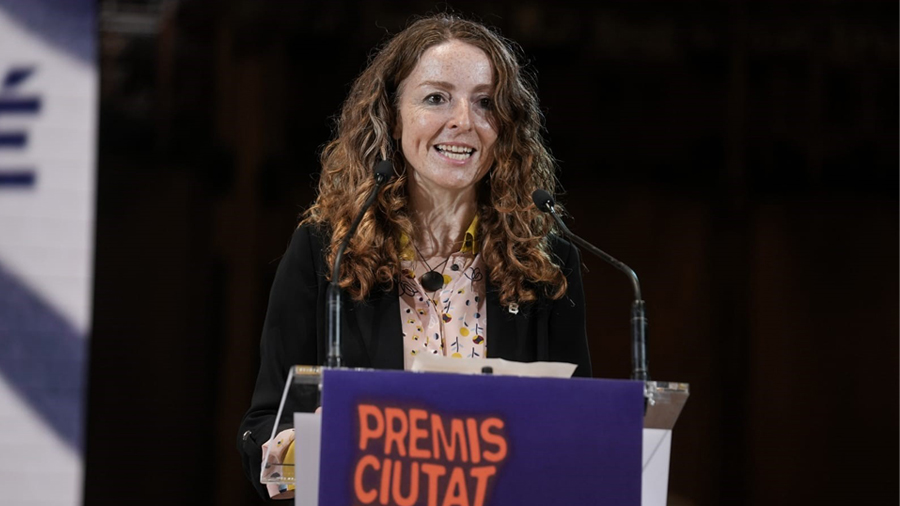UAB and CREAF researcher Sandra Nogué receives the Barcelona City Award
Sandra Nogué, researcher at the Department of Animal Biology, Plant Biology and Ecology of the UAB and at CREAF, recently received the 2023 Barcelona City Award. The award, given in the category of Environmental and Earth Sciences, recognises her contribution to baseline knowledge of plant diversity of oceanic islands and the determination of human influence.

Sandra Nogué received the award for her article on Long-term trajectories of non-native vegetation on islands globally, published in the journal Ecology Letters, for her excellent contribution to baseline knowledge on the diversity of plants typical of the oceanic islands and the determination of human influence. Her study has significant implications on the transfer of scientific knowledge to help improve the management and conservation of diversity in terrestrial ecosystems.
"It’s a great honor and a surprise. It’s a recognition of the research of recent years together with an extraordinary group of scientists", Sandra Nogué says, while adding: “this study included the participation of palaeoecologists, archaeologists, biogeographers and island ecologists from different universities in Europe and Oceania, with special involvement of the University of Bayreuth. I would like to highlight the value of basic data we collect from fossil pollen and which has allowed us to understand how plants have changed during hundreds and thousands of years. Thanks to collaborators such as Anna Walentowitz and Manuel Steinbauer we can enlarge this local data and apply it to a global scale”.
The Barcleona City Award was awarded unanimously by a jury made up of Esther Garcés (president), Alicia Pérez-Porro, Albert Soler, Santiago Giralt and Pablo Ortega.
Sandra Nogué is research director at the UAB and researcher at CREAF. She was lecturer of Palaeoenvironmental Sciences at the University of Southampton, UK, a research-oriented university ranking among the top 100 in the world. She is vice-president of communications at the International Biogeography Society and associate editor of the journal Global Ecology and Biogeography.
Currently, Sandra Nogué coordinates the ERC project “Island Time-Lines to Quantify Biodiversity Change” (TIME-LINES), with which she explores one of the most relevant questions in ecology and paleoecology: where biodiversity changes, at what speed and why, through the study of 5,000 years of changes in plant biodiversity, as well as the agents of these changes. For this she will use a series of high-quality palaeoecological records obtained from the sedimentary sequences of islands around the world. The results will make it possible to develop methods to quantify the effects of these agents of change, not only for the islands but for any place, and in a much thorough way than has been done so far, so as to be able to guide us on which trajectories are useful for sustainable biodiversity management.
Along with Sandra Nogué Bosch, the Barcelona Supercomputing Centre also received the award in the category of Experimental Sciences and Technology, and Tomàs Marquès-Bonet was awarded for his contributions in the category of Life Sciences.
The awards include a cash prize of €9,500 and the awards ceremony is held at the City Hall's Saló de Cent.